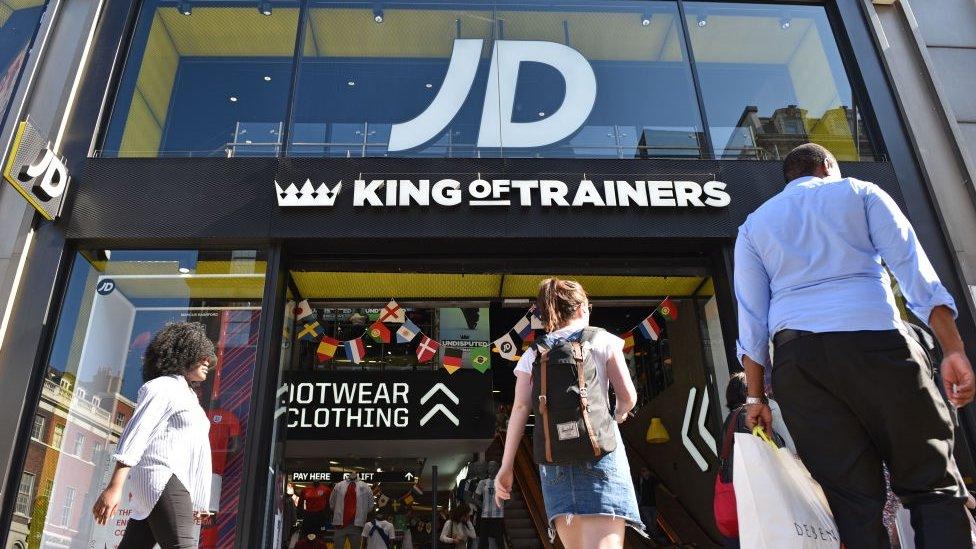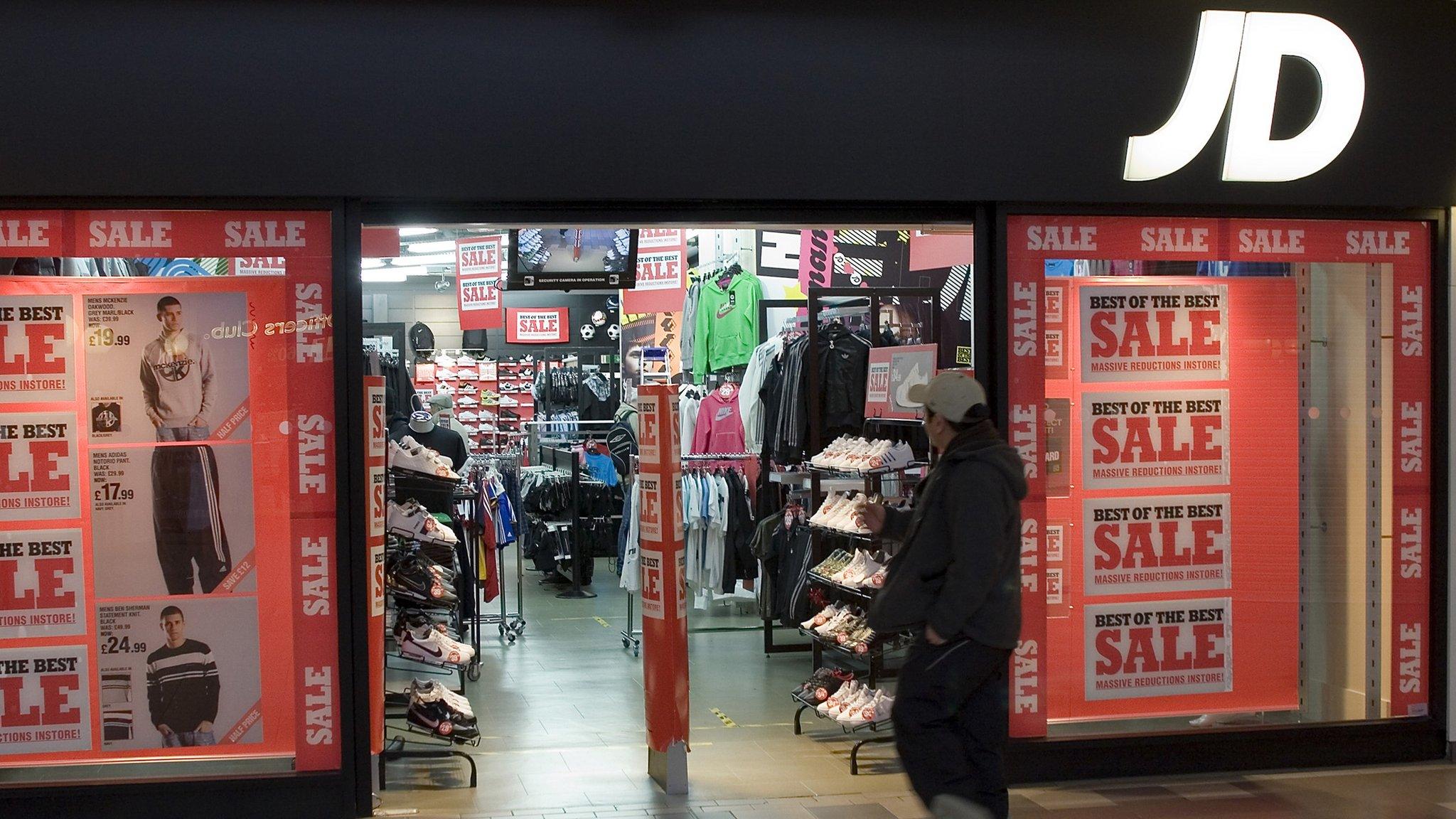JD Sports' takeover of Footasylum blocked by watchdog
- Published

The UK's competition watchdog has blocked sportswear retailer JD Sports from taking over rival Footasylum, saying the purchase would leave shoppers worse off.
The Competition and Markets Authority (CMA) said, external the £90m deal would leave shoppers with fewer discounts and lower quality customer service.
JD Sports hit back, saying it "fundamentally" disagreed with the CMA.
The company said the watchdog had not properly taken account of the market.
It said retailers not only compete with each other, but with big online businesses, and sportswear manufacturers who sell directly to consumers.
It also warned that the impact of the Covid-19 crisis would have a particularly detrimental effect on smaller retailers such as Footasylum.
JD Sports executive chairman Peter Cowgill said: "We fundamentally disagree with the CMA's decision, which continues to rely on an inaccurate and outdated analysis of the UK sports retail competitive landscape, and is underpinned by outdated and flawed customer surveys."
JD said it was considering an appeal and that, in the context of the coronavirus-driven pressures on retailers, the decision put the future of Footasylum at risk.
JD Sports itself has about 400 stores and also owns a number of other High Street brands such as Size?, Scotts, Tessuti and Footpatrol. It also operates outdoors stores such as Blacks and Millets.
'Close competitors'
However, the CMA said that while it was "obvious that coronavirus has led to retailers facing uncertain and challenging trading conditions", that did not remove its competition concerns.
It said it had looked at a wide range of evidence on how closely JD and Footasylum compete, along with competition from other retailers.
In two large surveys of the firms' customers, it found that "many JD Sports and Footasylum shoppers see the other firm as their next best alternative".
Kip Meek, chair of the CMA inquiry group, said: "Our investigation analysed a large body of evidence that shows JD Sports and Footasylum are close competitors.
"This deal would mean the removal of a direct competitor from the market, leaving customers worse off. Based on the evidence we have seen, blocking the deal is the only way to ensure they are protected."
He added that the decision "comes at a very difficult time for retailers" and that the CMA been "careful to consider the effects of coronavirus".
'Mike Ashley delight'
Neil Wilson, chief market analyst for Markets.com, said: "You can imagine the steam blowing out of Peter Cowgill's ears as he heard the CMA decision."
The CMA report refers to objections raised by a number of companies, including a "Company A", widely assumed to be Sports Direct, which is controlled by Mike Ashley.
Mr Wilson said the watchdog had "agreed with the Sports Direct argument that the JD-Footasylum tie-up would lessen competition among key must-have brands like Nike and Adidas."
"Mike Ashley will be delighted," he said.
The company which controls the Sports Direct brand, Frasers Group, had not responded to a request for comment at the time of writing.
Mr Wilson added that the CMA decision "was not so obvious".
"You would have to question whether the CMA has got this right," he said.
"However, in this case it was not about the overall market share, but the supply of certain key brands, and on that front JD Sports and Footasylum dominate so-called 'must-haves'. Their combination would have given them a powerful position in the market that a simple market share metric doesn't quite explain."
Greg Lawless, an analyst at Shore Capital, said the CMA had taken "a very tough stance" on the JD deal.
"As a standalone business it [Footasylum] was failing and with the benefit of hindsight perhaps expanded too quickly.
"The CMA has now ruled that the Footasylum business, which has been operated as a standalone business through the CMA regulatory investigation, will need to be sold and has prohibited JD Sports from owning the business.
"Given the current retail environment we highlight that this will not be an easy task and perhaps, misses the point that the retail industry remains very fast changing, especially with the current Covid-19 crisis."
- Published11 February 2020

- Published11 September 2018
